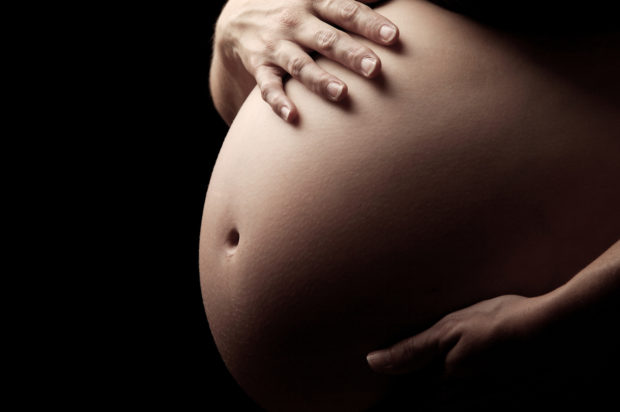Pregnant women do not have a greater risk of severe COVID-19, says study

When researchers analyzed how COVID-19 might affect the women’s children, they found that outcomes for infants were on the whole good. Image: iStock/pascalgenest via AFP Relaxnews
New British research has found evidence to suggest that pregnant women do not have a greater risk of experiencing severe COVID-19 than non-pregnant women.
Carried out by researchers from the University of Oxford, in collaboration with the Royal College of Obstetricians and Gynaecologists, the Universities of Leeds and Birmingham, Kings and Imperial Colleges London, the new study looked at 427 pregnant women who were admitted to hospitals in the United Kingdom with confirmed COVID-19.
The researchers estimated that 4.9 women out of every 1,000 pregnant women were admitted to hospitals with the virus, which suggests that pregnant women are not at a higher risk of experiencing severe illness.
However, they note that the majority of women who did become severely ill and needed to go to hospital were in the late second or third trimester of pregnancy, which highlights the importance of social distancing during later pregnancy.
In addition, older pregnant women who were aged 35 and over, overweight or obese women, and those who had pre-existing medical problems, such as high blood pressure and diabetes, were also more likely to be admitted to hospital with COVID-19, as were pregnant women from black and ethnic minority backgrounds, a finding which the researchers say requires urgent investigation.
When the researchers analyzed how COVID-19 might affect the women’s children, they found that outcomes for infants were on the whole good. Although one in five babies born to mothers hospitalized with COVID-19 were born premature and were admitted to a neonatal unit, less than 20 babies were born very premature, before 32 weeks.
One in 20 babies born had a positive test for COVID-19, but only half of them immediately after birth, which suggests that transmission of infection from mother to baby is low, say the authors.
However, as this is a preliminary report which has been published on medRxiv, a preprint server for health sciences, the findings have not yet been peer-reviewed, meaning it has not been verified by other experts.
Nevertheless, Gill Walton, chief executive of the Royal College of Midwives, commented on the results saying, “During this current crisis, pregnancies have continued, babies have been born, and, throughout it all, midwives have been at their side, supporting and caring for them.”
“It’s absolutely vital that women continue to attend antenatal appointments to ensure that they and their babies are well. Staying in touch with their maternity services team will help put any concerns at ease and enable them to act quickly when necessary,” he added. IB
RELATED STORIES:
COVID-19 not transmitted from pregnant mothers to newborns, suggest recent case studies
Mothers who drink while pregnant could increase child’s risk of depression
For more news about the novel coronavirus click here.
What you need to know about Coronavirus.
For more information on COVID-19, call the DOH Hotline: (02) 86517800 local 1149/1150.
The Inquirer Foundation supports our healthcare frontliners and is still accepting cash donations to be deposited at Banco de Oro (BDO) current account #007960018860 or donate through PayMaya using this link.